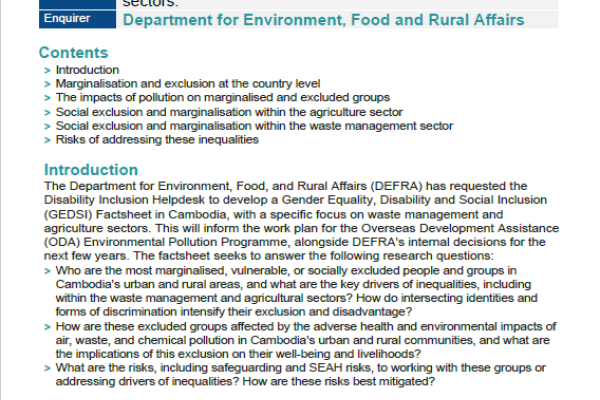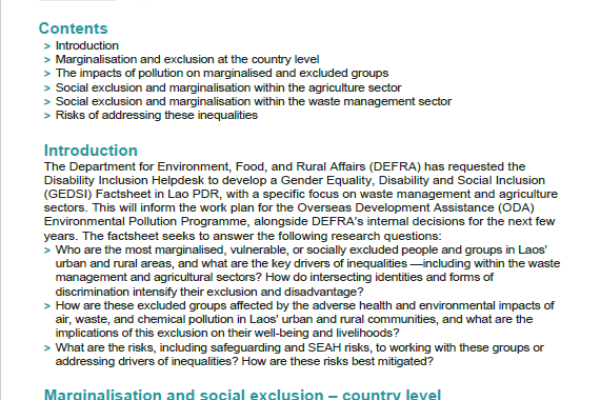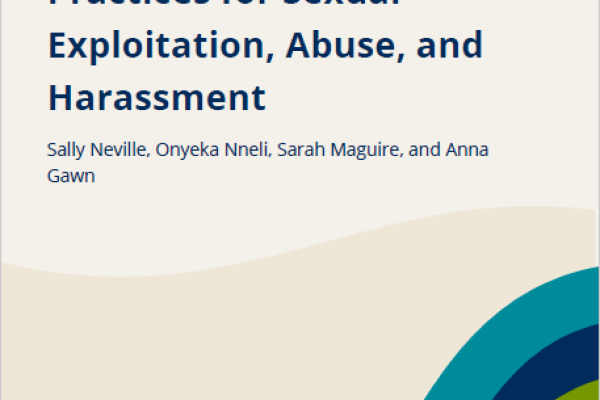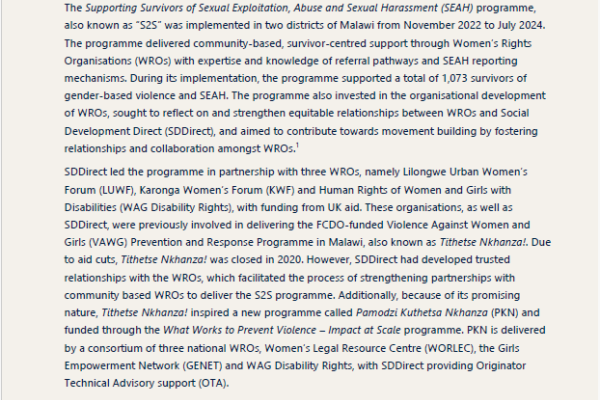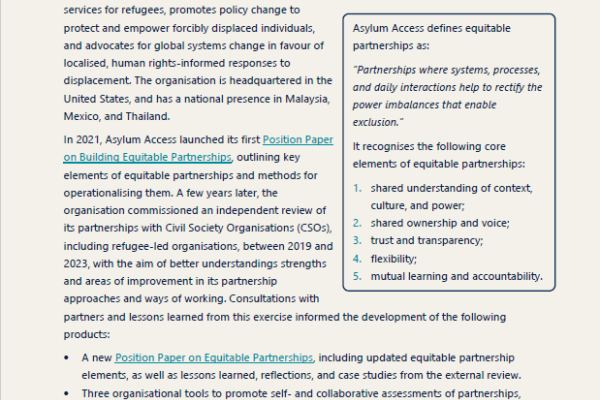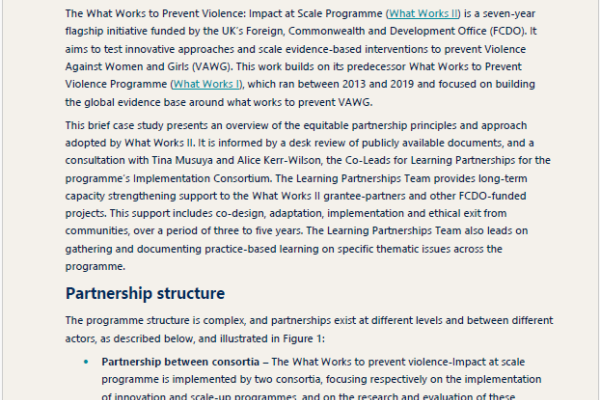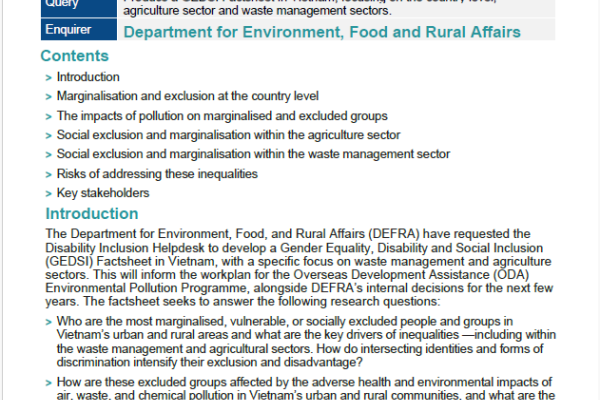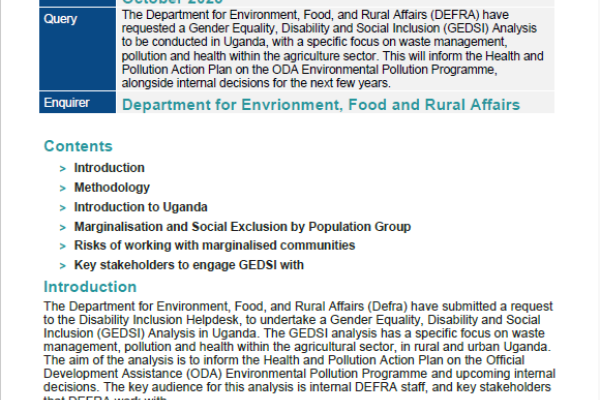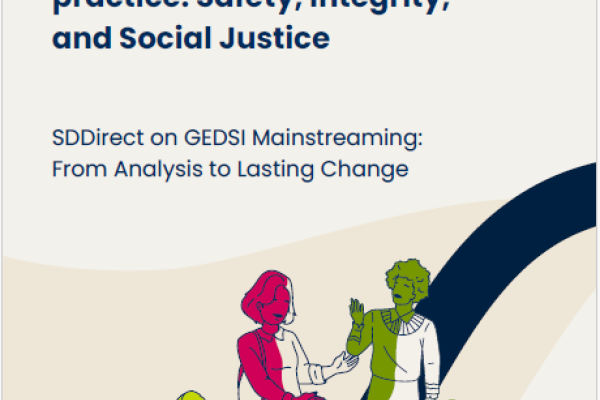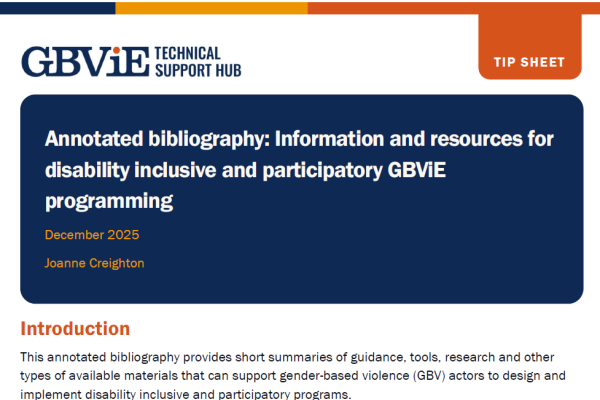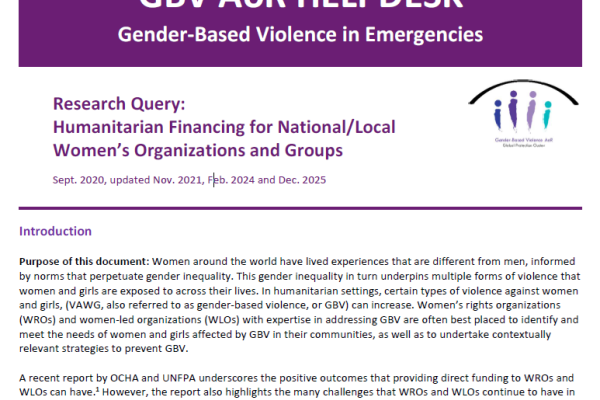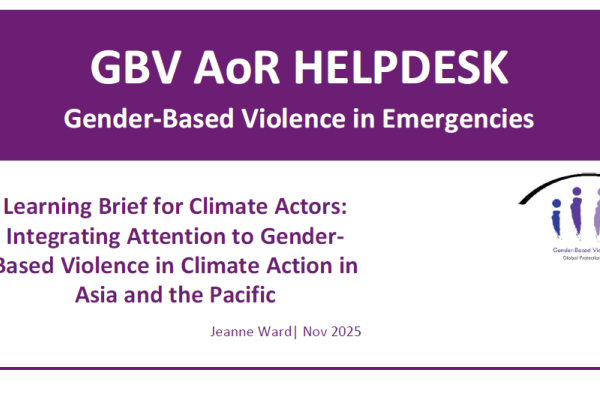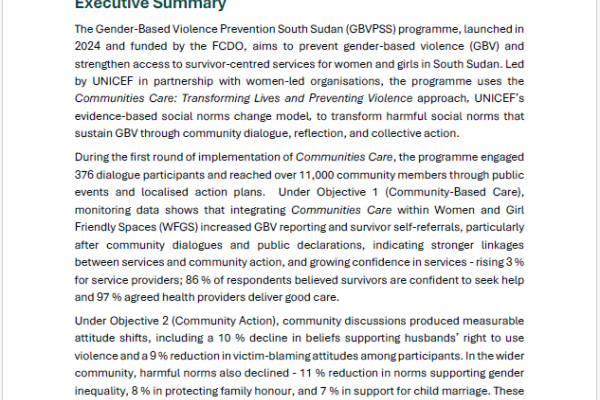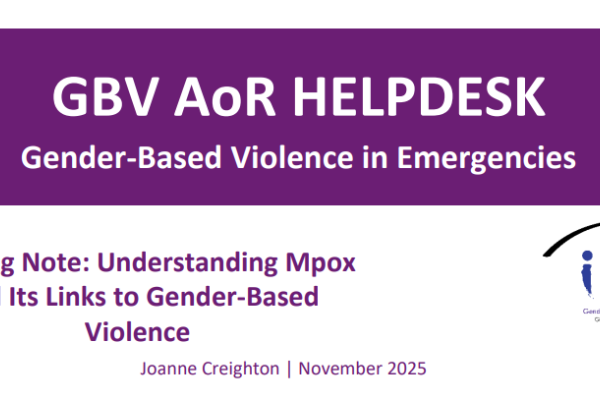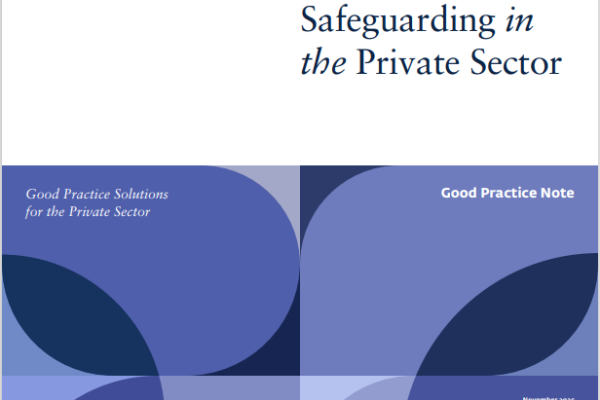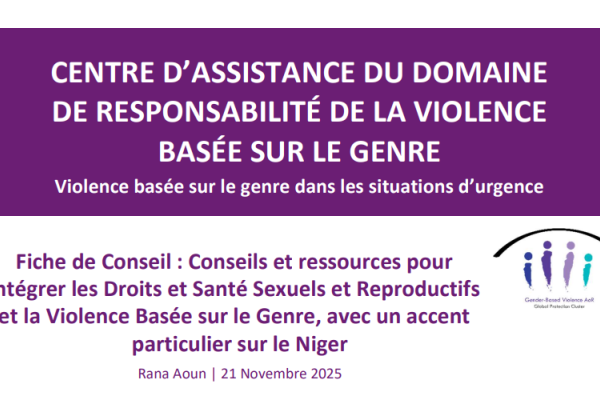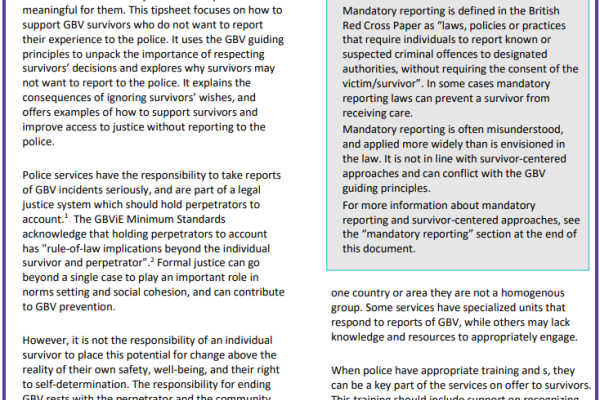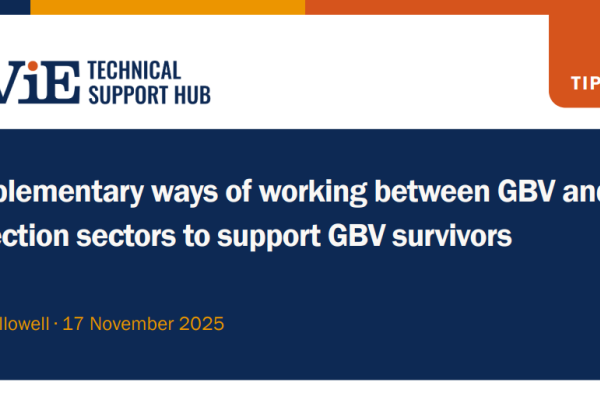This factsheet offers an overview of GEDSI within Cambodia, with a specific focus on waste management and agriculture sectors.
SDDirect Library
Use the search functions below to explore the full range of publications, tools and research produced by SDDirect.
Displaying 1 - 18 of 549
- This factsheet offers an overview of GEDSI within Laos PDR, with a specific focus on waste management and agriculture sectors.
- This desk-based study examines evidence and practice on financial compensation for SEAH survivors through literature review, interviews, and analysis. It clarifies the distinction between legally…
- This case study shares insights and lessons learned from the use of equitable partnership tools as part of the Supporting Survivors of Sexual Exploitation, Abuse and Sexual Harassment (SEAH)…
- This case study presents an overview of Asylum Access’ work on equitable partnerships, including tools developed, and lessons learned from these efforts.
- This case study presents an overview of the equitable partnership principles and approach adopted by What Works II, including opportunities, challenges, and lessons learned.
- This factsheet offers an overview of GEDSI within Vietnam, with a specific focus on waste management, pollution and health within the agricultural sector.
- This resource offers a Gender Equality, Disability and Social Inclusion (GEDSI) Analysis that was conducted in Uganda, with a specific focus on waste management, pollution and health within the…
- This resource offers practical, experience-based guidance on GEDSI mainstreaming in practice showing how to move from strong analysis to lasting change in policies, systems and programmes. It is…
- This annotated bibliography provides short summaries of guidance, tools, research and other types of available materials that can support gender-based violence (GBV) …
- Women around the world have lived experiences that are different from men, informed by norms that perpetuate gender inequality. This gender inequality in turn underpins multiple forms of…
- This learning brief introduces climate and disaster risk reduction (DRR) actors to the importance of addressing the connections between GBV and climate change to facilitate more effective and…
- This resource provides an overview of work undertaken by the Gender-Based Violence Prevention South Sudan (GBVPSS) programme. Launched in 2024 and funded by FCDO, GBVPSS aims to prevent GBV and…
- This briefing note aims to provide gender-based violence (GBV) practitioners and policymakers with essential information about Mpox, a viral disease. During public health emergencies like Mpox…
- This practical and user-friendly note supports private sector entities in addressing child safeguarding risks and impacts. The guidance aligns with established international standards, good practice…
- [English] This tipsheet helps health and GBV workers (including volunteers and frontline service providers) to understand the interactions between SRHR and GBV in humanitarian crises. The resource…
- This tipsheet focuses on how to support GBV survivors who do not want to report their experience to the police. It uses the GBV guiding principles to unpack the importance of respecting survivors’…
- It is important that both GBV and Protection actors understand when collaboration is appropriate, what should be in place to enable it, and when to advocate for separate programming. This tipsheet…
